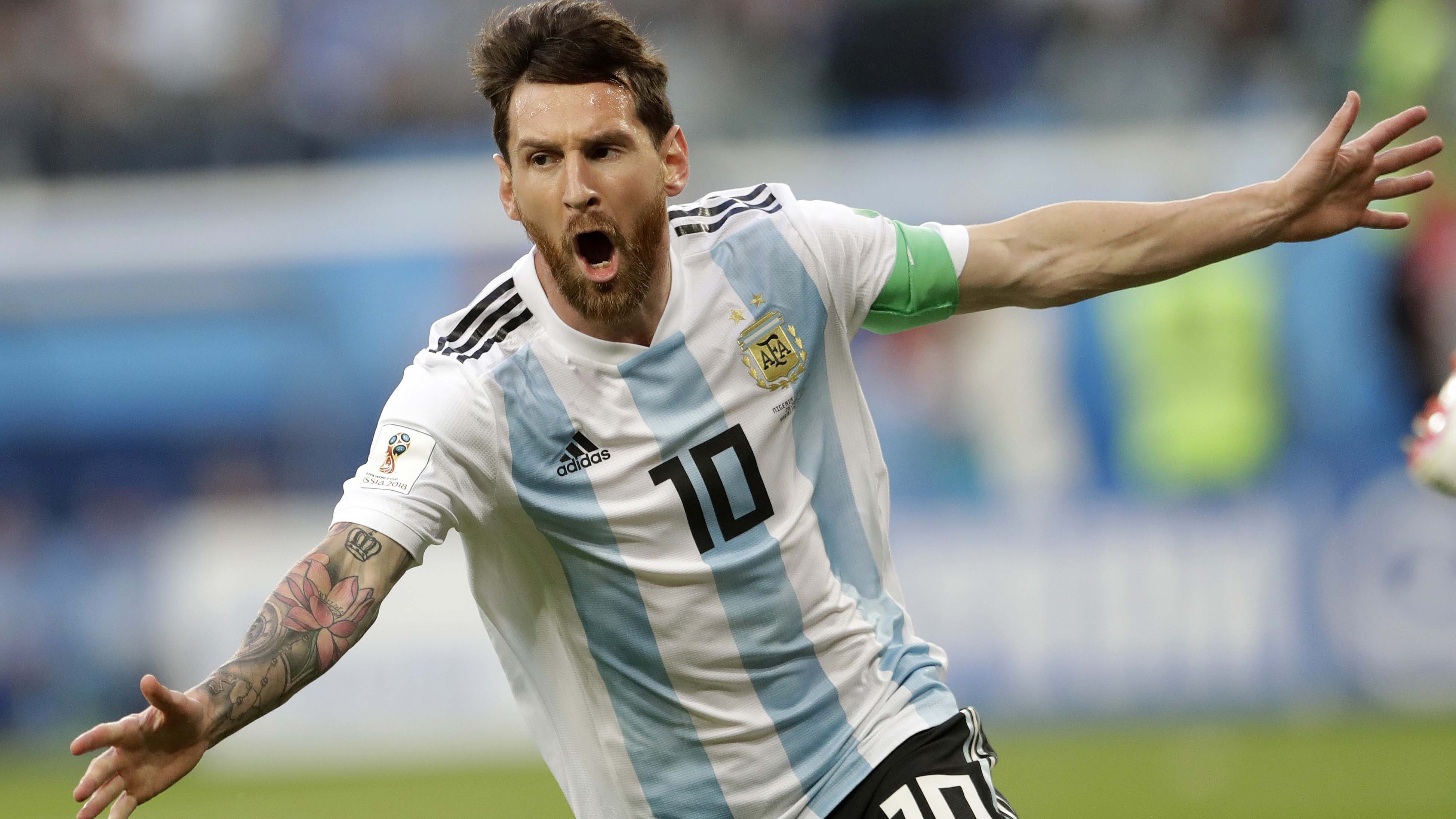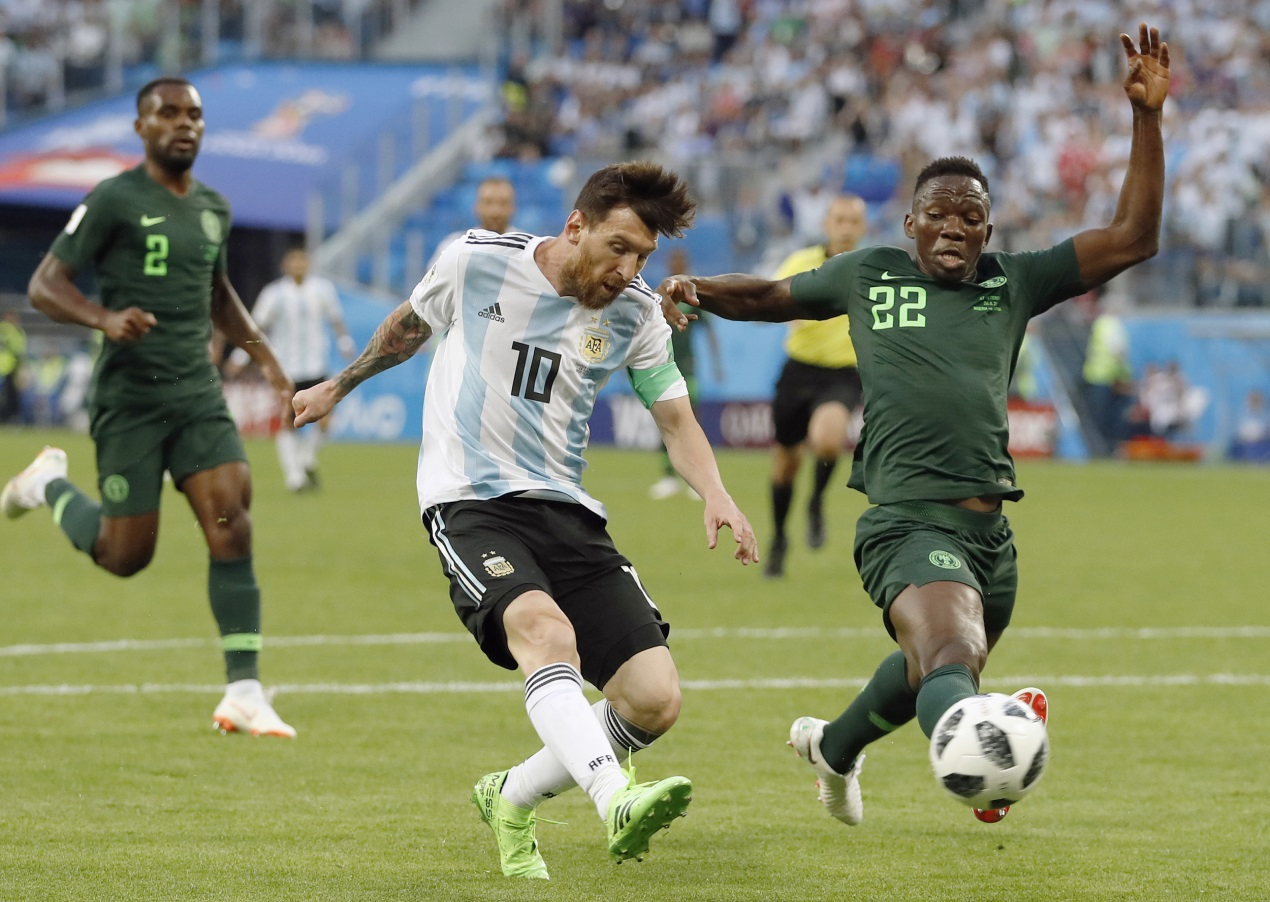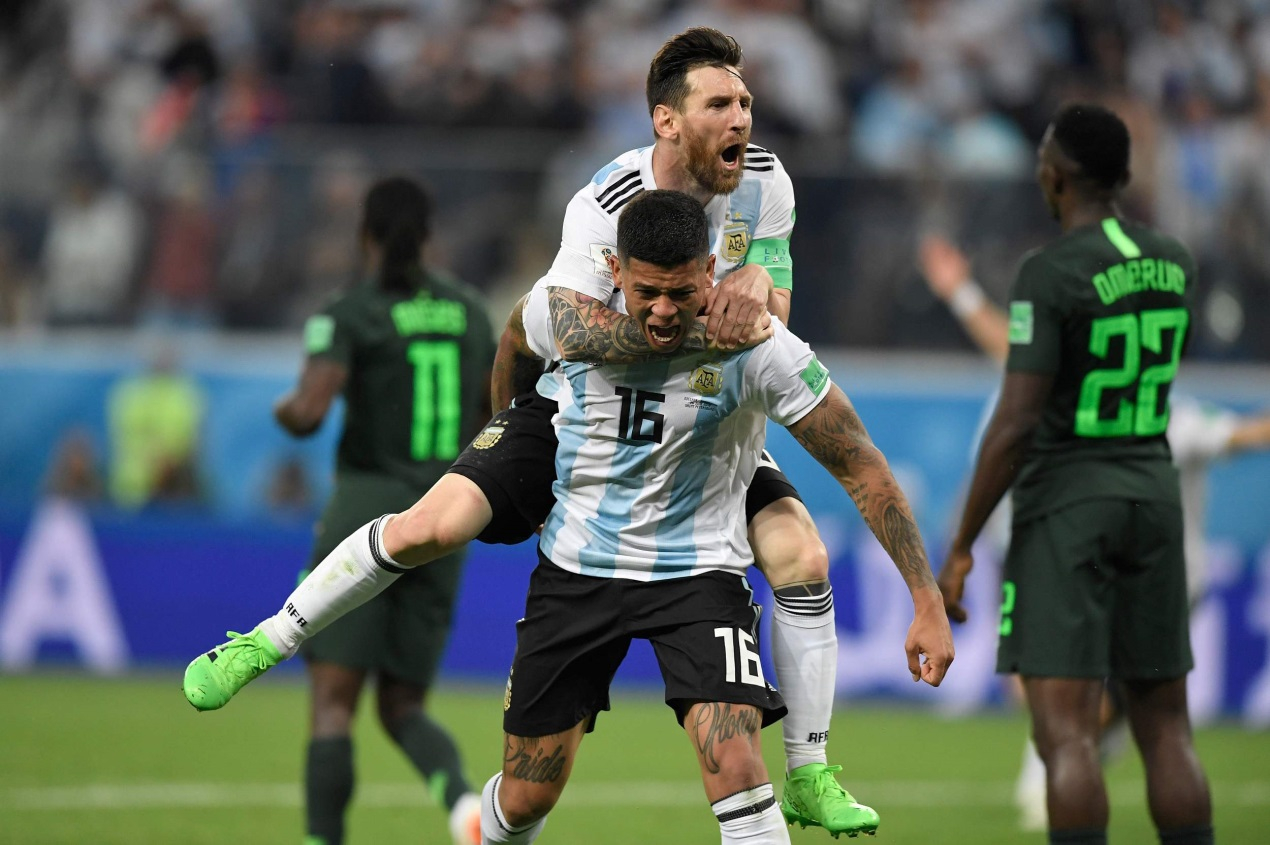
Sports
13:09, 27-Jun-2018
Argentina and Messi live to fight another day in Russia
Updated
12:36, 30-Jun-2018
Suvam Pal
00:39

When Andrew Lloyd Webber and Tim Rice wrote and composed their iconic song "Don't Cry for Me Argentina" for the legendary Broadway production "Evita" – based on the charismatic former Argentine First Lady and a political stalwart Eva Peron – in 1976 little did they know that the powerful lyrics of the song would have stayed forever with the one of greatest footballers from the Latin American nation. The song, for long, has been synonymous with Lionel Messi’s failure to win a single senior-level silverware for his country.
Two years after British singer and actress Julie Covington recorded the song for her 1976 album Evita, Peron's country hosted the World Cup and won it too. A few years later, Diego Maradona, overcame his agonies of 1982 to win it again in 1986 amidst "La ola" or the Mexican Wave.
The song made a comeback to the world of football with Maradona's famous cry after his side narrowly lost in the 1990 World Cup final in Rome, and stayed with the subsequent World Cup performances by Argentina.
However, it's Messi's repeated failure to win his elusive trophy for Argentina, the agonizing near misses in the finals and the subsequent breakdowns have often personified the first line of the chartbuster song with one of the greatest footballers of the current generation.
A do-or-die battle & an imminent exit

Lionel Messi (10) of Argentina scores the opener against Nigeria in St. Petersburg, Russia. /VCG Photo
Lionel Messi (10) of Argentina scores the opener against Nigeria in St. Petersburg, Russia. /VCG Photo
As Argentina were taking on a resurgent Nigeria, fresh from their two goal onslaught of Iceland, they were pushed to the brink. A drab draw against debutant Iceland, highlighted by Messi's epic penalty miss, and a humiliating 3-0 defeat against Croatia paved the way for yet another tearful farewell for Messi, who came out of retirement to give one last shot at winning the most coveted missing silverware from his illustrious trophy cabinet.
A sub-par team, a mercurial coach and a misfiring legend were up against their perpetual nemesis in the World Cup. Although they managed to win each of the previous four World Cup matches in the past, a gritty Nigeria never allowed Argentina to win any of those hard-fought games by more than one goal. A win would have not only knocked them out of the tournament but would also saw the traditional football powerhouse from Latin America would return from a World Cup without registering a single win since 1934.
The magical moment of Messi
As the game kicked off and Argentina started taking possession of the field with their trademark short-passes for longer durations, they raised hopes early in the game and a brilliant goal from Messi as he received a Ever Banega pass on his right thigh, took it in stride with a deft second touch before burying it past an advancing Nigerian keeper Francis Uzoho:
The Saint Petersburg Stadium was lit up with a sea of ecstatic Argentina fans wearing their trademark blue and white jerseys. Messi finally arrived in the 2018 FIFA World Cup with that Messi-esque goal and soon came agonizingly closer to scoring a free-kick goal as the ball flew over the outstretching hands of the diving Nigerian goalkeeper before hitting the side bar.

Argentina's defender Marcos Rojo (lower) celebrates his goal with Messi during the Russia 2018 World Cup Group D football match against Nigeria which ended 1-2 in Argentina's favor. /VCG Photo
Argentina's defender Marcos Rojo (lower) celebrates his goal with Messi during the Russia 2018 World Cup Group D football match against Nigeria which ended 1-2 in Argentina's favor. /VCG Photo
A slew of fresh attacks and a heavily marked Messi saw Jorge Sampaoli's side failing to double the lead before they received a big blow because of an unnecessary arm-wrapping of Leon Balogun by Javier Mascherano soon after the beginning of the second half. The VAR appeal by the Argentines couldn't stop the penalty and Victor Moses didn't make any mistake in fauxing a wrong-footed Franco Armani, who came as a replacement for Willy Caballero after his three-goal Croatian nightmare.
The moment of revival and reset
With time running out, a jolted Messi and his boys made a late resurgence with a more aggressive style of play but an anticipating and advancing Armani saved the day for Argentina by thwarting many close Nigerian attempts.
When Gabriel Mercado's clinically executed cross found Argentine defender Marcus Rojo away from the melee inside the box towards the fag end of the game, the Manchester United defender, without wasting any time in receiving, tapping or passing the ball, blasted home with power and precision past a diving Uzoho.
The all-important second goal not only saw a visibly elated Messi jumping on Rojo's back but also saved his tears for another day, probably. An animated El Diego, whose antics at the VIP Box were being closely followed and showed on television, celebrated the great survival by directing his middle fingers up in the air and a loud shout with profanity.
Argentina lived another day in the ongoing World Cup and raised hopes for a magical turnaround, courtesy the master inspirer of dreams, Lionel Andrés Messi Cuccittini. Sampaoli's words, "Soccer, the World Cup, could not be left without Messi," which he philosophically uttered after Messi single-handedly catapulted the struggling side to the World Cup finals with a magnificent hat-trick against Ecuador, remained intact, at least till the knockout round game against France. The famous Eva Peron song can wait.

SITEMAP
Copyright © 2018 CGTN. Beijing ICP prepared NO.16065310-3
Copyright © 2018 CGTN. Beijing ICP prepared NO.16065310-3